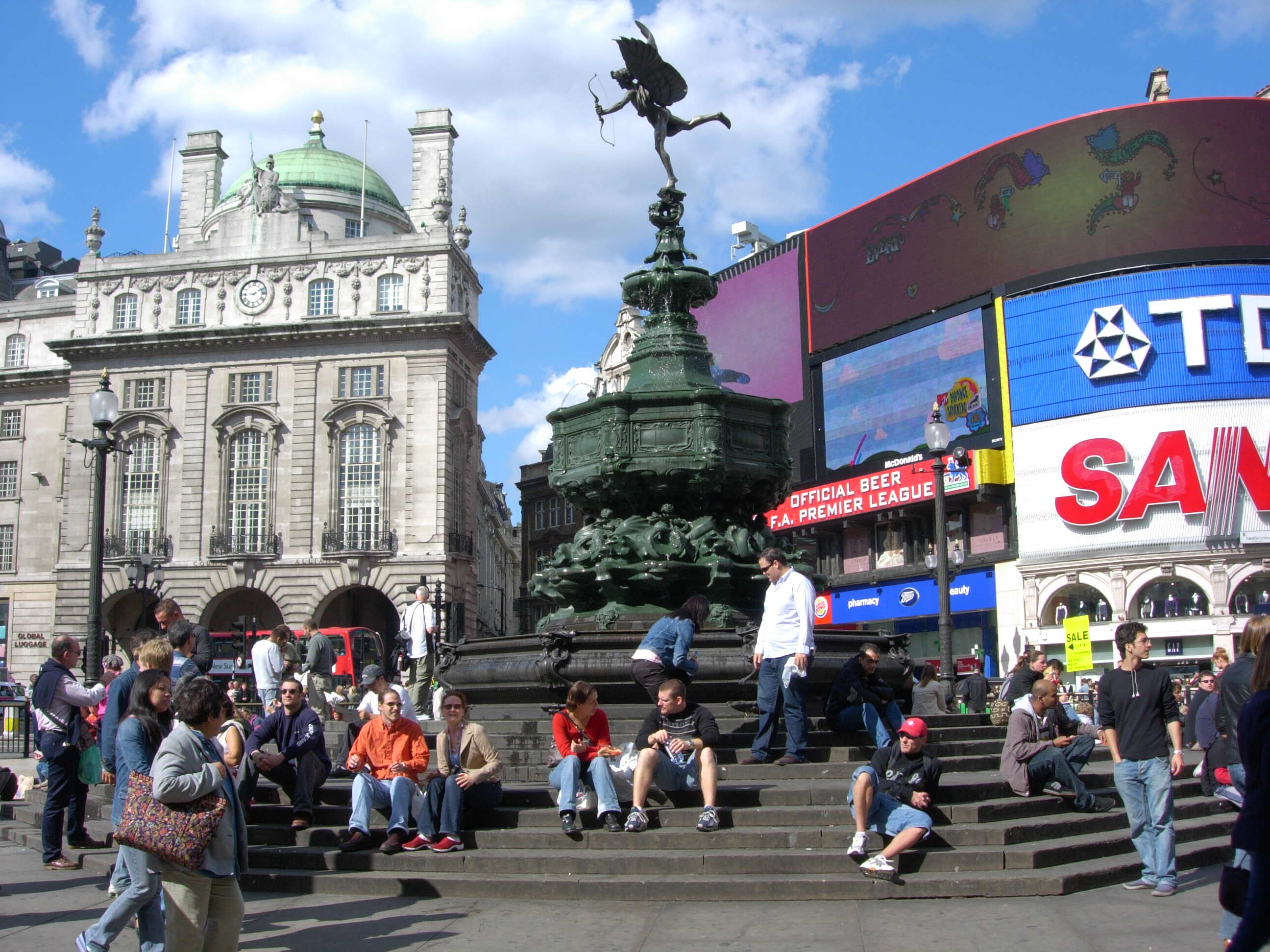|
London Sights to See
Piccadilly Circus
|

|
At the junction of Regent Street and Shaftesbury Avenue the visitor to London will find a
trapezoidal area near London's West End known to the world as Piccadilly Circus.
It's an odd name, since there's no circus there and possibly never has been. The fact is that "circus", Latin for "ring", usually is used to designate a round city area where several streets meet in a circle, after a Roman plan. In fact, a "three ring circus" is a bit of overstatement. But that designation fits Piccadilly, since, like the three busy rings of the circus, this area of the great British capital attracts the most diverse set of people in an already diverse town.
The first half of the name comes from a 17th-century frilly
collar called a picadil.
The name is a perfect description, for here are the frills of London. Here are pubs, monuments, shops and nearby theater in
the West End.
Whatever the name means, no London sightseeing trip would be complete without a visit to Piccadilly Circus!
Much like New York's Times Square, Piccadilly Circus is filled with traffic, crowds and (at night) neon lights befitting its role as a major tourist attraction.
Known ad early as 1743 by its current name, the junction was created in 1819 and its history shows. There's the bronze Shaftesbury memorial
fountain, erected in 1893, topped by a statue of Anteros (sibling of Eros), the Angel of Christian Charity. (The Evening Standard uses a graphic of the nude statue on its masthead.)
Technologically innovative for its time, it was the first sculpture to
be cast in aluminum. In the late 1980s, the fountain was moved from the
center to its present location at the south west corner of the intersection.
Not far from the center, is the off-center (the literal translation of
the Greek word "eccentric") The Reduced Shakespeare Company , who have performed at the Criterion Theater since 1995. , who have performed at the Criterion Theater since 1995.
The specialty of the Reduced Shakepeare Company is a rapid, highly
improvised, presentation of the complete works of Shakespeare in 97 minutes. (Well, a presentation that
draws inspiration from 37 of the plays, anyway.) The 600-seat theater
regularly sells out, so be sure to plan ahead.
That surrealistic show fits in quite well with the ambiance of the
area, but for those interested in more traditional forms of theater the London West End shows are only a few minutes walk. Here you can see the best
of British theater - shows which often are later imported to Broadway.
On the northeastern side, is the London
Pavilion, located on the corner of Shaftesbury Avenue
and Coventry Street
and facing, Piccadilly Circus. First erected in 1859
as a music hall, Shaftesbury Avenue bisected the site in 1885. A new
building for the purpose was built and by 1923 was even lit with
electric billboards. Rebuilt again in 1986, the original 1885 facade
was
preserved and the area converted to a shopping arcade. Later it was
connected to the neighboring Trocadero Centre.
Virgin Megastore
used to have a shop here, but that was purchased in 2008 by Zavvi but then that
company was liquidated, and, as of this writing, Number 1 Piccadilly
stands empty, a victim to the changing tides of business. Lillywhites, a
major sporting good retailer is nearby, having been there since 1925.
Under the complex is the tube station (the London
Underground subway
system).
There are also pubs galore, but be selective. Some are full of nothing
but tourists, some are very tourist-unfriendly. While you're doing touristy
things, don't miss the newly installed, giant, curved TV screen. Not
even Times Square can compete with this one.
More Sights to See in London
Sitemap
Cities of the World
Travel Blog
|

